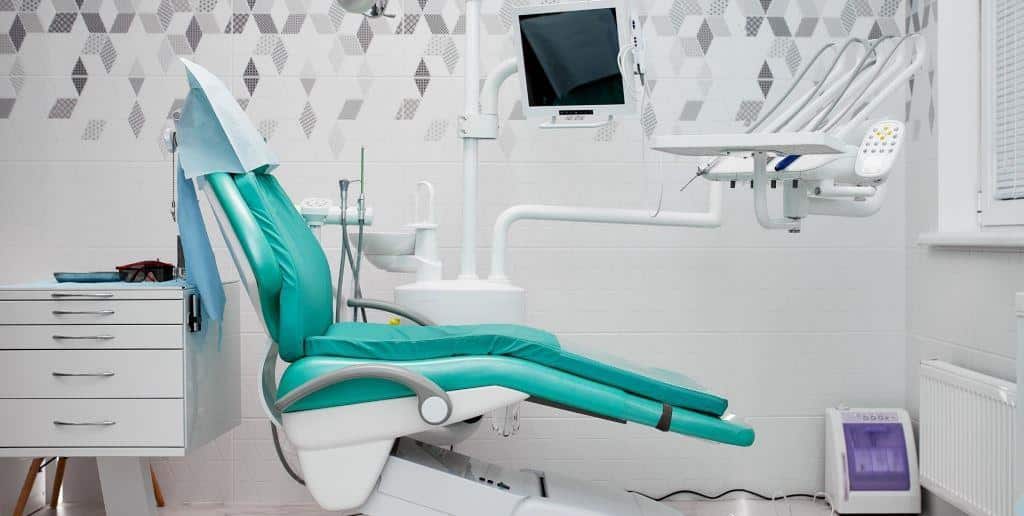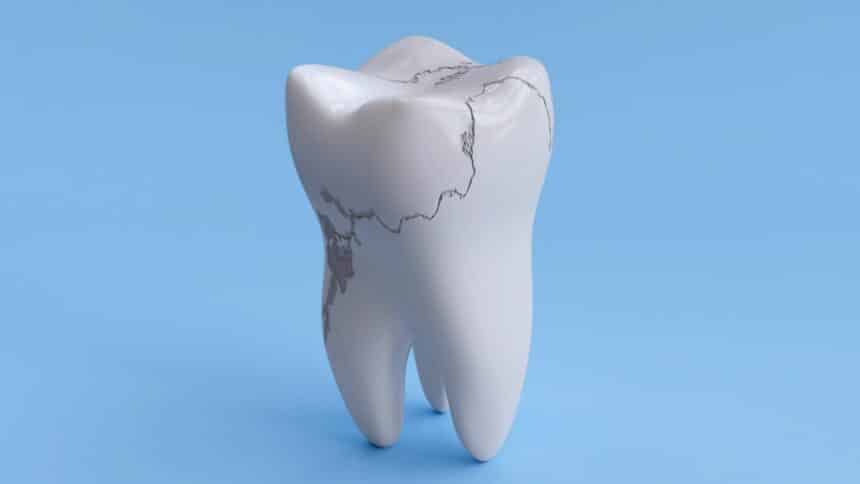What can lead to a cracked tooth? A number of different factors - sometimes it occurs as a result of previous cavities and also, for example, when a filling has been incorrectly placed at an earlier appointment. Most commonly, however, it is caused by mechanical trauma. Whatever the cause, you should always contact your dentist as soon as possible. Why? Because a cracked tooth is not only an aesthetic problem, but also a painful one; it can also have more serious consequences.
Cracked tooth - what exactly does it mean and what can lead to it?
The enamel, with which the tooth is covered, is one of the hardest tissues in the human body. However, cracks can also appear on it. Even a small crack can, over time, lead to a vertical or horizontal fracture of the tooth.
The most common cause is mechanical damage For example, during an impact or fall. Also highly influential are tooth decay, which weakens the teeth, and an inadequate diet.
Another reason is root canal treatment. If the tooth is dead, it is weaker thus more susceptible to mechanical damage.
Importantly, the crack can occur on the visible part of the tooth, but also in the root.

Disturbing symptoms
Sometimes the damage is not visible or palpable - which is why frequent check-ups at the dentist are so important. Regular visits can prevent the situation from getting worse.
A signal that you may have a cracked tooth can be a pain that intensifies on impact with hot or cold and on biting. Its strength depends on how severe the fracture you are dealing with.
The pain may be accompanied by swelling, as well as an unpleasant odour from the mouth. The latter may mean that health-threatening complications are slowly developing.
Cracked tooth - what to do?
Of course, here it is necessary to visit the dentist and undertake appropriate treatment. This must not be delayed. A cracked tooth can lead to decay or even a tooth breaking off at the root.
While you are waiting for your appointment, take care not to bite the side where the cracked tooth is. Also, try to avoid hard foods - and remember that now more than ever you need to take good care of your oral hygiene.
During the visit, the dentist will check how strong the fracture is. The treatment plan will depend on this. Some cracks can be repaired in one appointment, but there may be some that require more attention.

Cracked tooth - treatment
If the fracture is not very severe, placing a filling at the site of the enamel fracture will suffice. This will help the tooth regain its original appearance and also protect it from bacteria or various infections.
Sometimes a prosthetic crown is necessary. In which cases? When a large fragment of a tooth has broken off as a result of a fracture. This is when the dentist, after preparation at the time, places a crown on the tooth, the purpose of which is to protect the tooth but also to improve its appearance.
It is worth noting that the crown is permanently fixed and can be made of various materials. In our practice, we offer metal, ceramic, acrylic and composite crowns. You can read more about crowns in our article "Crowns for teeth in the UK - everything you need to know".
If the fracture has occurred on the front teeth, veneers can be used dental. What are they? They are thin layers of porcelain or composite that are attached to the teeth. You can read more about veneers in our article: "Dental veneers in the UK. Everything you need to know".
To treat a cracked tooth, root canal treatment will sometimes be necessary. A large, deep crack in a tooth can expose the pulp of the tooth. The pulp contains nerves and blood vessels. If not addressed in time, it can become infected - and this means it has to be removed. In cases where treatment is not given, a situation may arise where the tooth needs to be extracted. Read more about this in our article: "Tooth extraction in the UK - when is it necessary and how much does it cost".
Some people underestimate a minor tooth fracture or explain the excessive cost of dental treatment. This is why our patients can expect to pay the cost of treatment in instalments. You can find out more in the article: "Teeth on credit: dental treatment on hire purchase". We would only add that our system is 100% secure and regulated by the Financial Conduct Authority (FCA number: 619628).

How to prevent teeth cracking?
The most important thing is to try not to bite too hard foods (sweets, nuts) if you know that the tooth has been treated. Citrus fruits, coffee, alcohol, fizzy drinks and isotonic drinks are also bad for the teeth. It is therefore advisable to limit their consumption.
Proper oral hygiene is also essential. Also check out "9 products to help you keep your teeth healthy„.
Patients are very often afraid of the dentist, but it is regular visits and hygienization that can reduce this. During hygienization, not only will you get rid of tartar, but the dentist also has the opportunity to check your oral health. You can read exactly what the hygienization procedure entails here HERE.
If you suspect a cracked tooth in your, contact us as soon as possible. We know we can help you.

